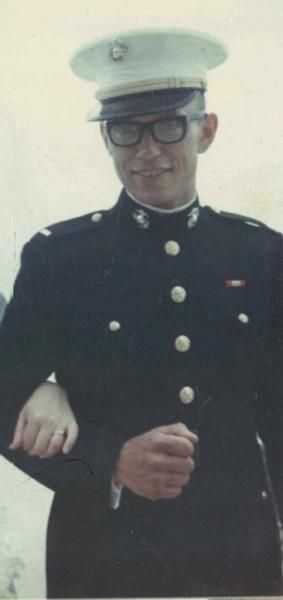Vietnam War Soldier’s legacy continues with the Wayne W. Gross Graduate Fellowship

An economics alumni established the Wayne W. Gross Graduate Fellowship to honor his friend, Wayne Gross, who died in Vietnam. The recipient of this will be a Ph.D. student in economics who is beginning their dissertation process. One recipient is awarded for the duration of three years.
October 30, 2014
Wayne W. Gross earned a master’s degree in economics from Iowa State in 1967 and died a little over a year later in the Vietnam War.
Over 45 years later, the Wayne W. Gross Graduate Fellowship will be awarded to an economics graduate student as early as next fall.
The donor, who wishes to remain anonymous, was friends with Gross while they were pursuing graduate degrees in economics. Gross was humble, never spoke ill of anyone and listened to people when they talked to him, the donor said.
“This was simply something that I had thought a long time about doing, and now I could,” the donor said. “I felt a fellowship in Wayne’s memory would also go a long way towards helping another human being to accomplish goals that Wayne made a deliberate choice to put on hold.”
Gross put his future on hold and volunteered for the military. The donor was moved to help graduate students pursue their education because Gross helped his country and the people around him.
“It’s basically a fellowship that would fully support the graduate student during those last three years,” said John Schroeter, professor and interim chair of economics. “The award has to cover tuition, benefits and a stipend for students living expenses.”
Zhixia Ma, fourth year graduate student in economics and president of the Economics Graduate Student Association, said the fellowship would help the student focus on his or her dissertation and reduce the pressure to get another job to pay for school.
Some graduate students in economics are able to get paid assistantships for financial support. Ma said getting an assistantship is competitive, as there are only 40 available. Graduate students can also apply for paid research assistantships in the summer.
“In a research assistantship usually students work with their major professor within their field of interest,” Ma said. “It helps them to set up the research skill in their own fields.”
Graduate students with assistantships are required to do outside work, such as being a teacher’s assistant. Ma said being a teacher’s assistant outside your area of interest can distract you from completing dissertation work.
“For most students I don’t think they can get enough funding,” Ma said. “If they can have some sort of fellowship that would really help.”
As a result of having to divide their attention between assistantship duties and their dissertation, graduate students in economics often have to stay more than five years. Ma hopes that her parents can help her financially, so she can finish in five years.
The Wayne W. Gross Fellowship recipient will be decided by the department chair. Professors may be asked for their opinion on candidates. The chair will try to find a student that closely matches the donor’s preferences.
“A focus on agricultural markets would reflect Wayne’s background in agriculture, and I suggested a preference for industrial organization or economics of market organization to reflect my own speciality,” the donor said.
The donor also hopes the recipient will learn more about Gross and visit the Gold Star Hall in the Memorial Union where Gross’s name is engraved on the wall, reminding them of Gross’s sacrifice.






